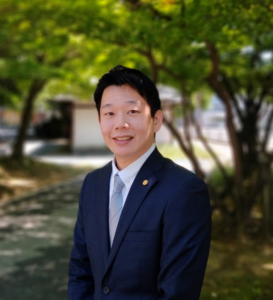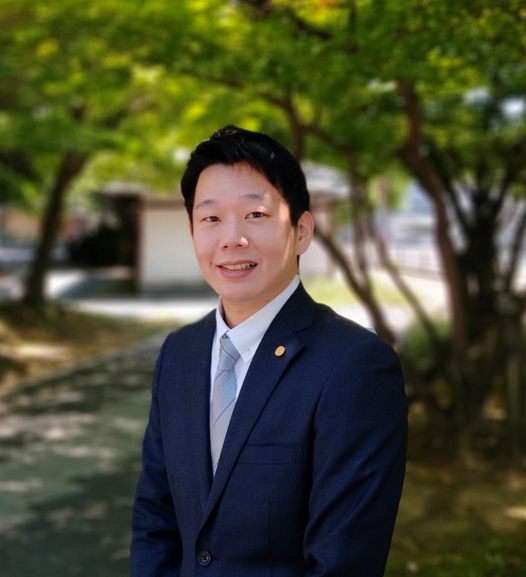Reviewed by: Yuki Ando, Certified Immigration Legal Specialist (Gyoseishoshi)
As Japan’s caregiving industry faces a growing labor shortage, more companies are beginning to focus not only on hiring foreign workers, but also on developing and training them over the long term. It is important to consider how obtaining the Certified Care Worker (Kaigo Fukushishi) qualification can change the career trajectory of foreign nationals working under the Specified Skilled Worker (SSW) status, and what advantages this brings to both the individuals and the organizations that employ them.
In this article, we provide a clear explanation of the career pathway for foreign workers in the caregiving field and the differences between relevant residency statuses. We hope this information will support efforts to secure qualified care professionals in Japan, where such roles are expected to be in increasingly short supply in the years ahead.
What Is the Difference Between the “Specified Skilled Worker (Caregiving)” and the “Caregiver” Visa Status?

The “Specified Skilled Worker (Caregiving)” and the “Caregiver” visa are two distinct residency statuses in Japan, each with its own set of characteristics.
In this section, we will clarify the fundamental structure and purpose of each status to help you better understand how they differ.

What Is the “Specified Skilled Worker (Caregiving)” Visa for Those with a Certain Level of Caregiving Skills?
The “Specified Skilled Worker (Caregiving)” visa is a residency status introduced in 2019 to address the severe labor shortage in Japan’s eldercare industry.
To obtain this visa, applicants must pass three requirements: the Caregiving Skills Evaluation Test, proof of Japanese language ability at the JLPT N4 level or higher, and the Nursing Care Japanese Language Evaluation Test.
The maximum period of stay under this status is five years in total. Foreign nationals working under this visa primarily provide physical care services, such as assistance with bathing, eating, and toileting. However, they may also be involved in other tasks typically performed by Japanese staff, including recreational activities and support for rehabilitation exercises.
This visa category was designed for individuals who possess a certain level of caregiving expertise and Japanese language proficiency. As such, it allows qualified workers to contribute immediately in the workplace, and opportunities continue to expand across various care settings.
What Is the “Caregiver” Visa Status for Certified Care Workers in Japan?
The “Caregiver” visa is a specialized residency status granted to foreign nationals who work in Japan as Certified Care Workers (Kaigo Fukushishi).
To obtain this visa, it is mandatory to hold the national qualification of Certified Care Worker, which requires a high level of caregiving knowledge, technical skills, and Japanese language proficiency.
This visa is intended for individuals who are well-trained in the caregiving field. It allows them to engage in a wide range of responsibilities—not only core caregiving duties such as physical assistance, but also supervisory roles and on-site management of care staff.
Importantly, there is no fixed upper limit on the period of stay for this visa. As long as the holder continues to meet the required conditions during each renewal review, the visa can be extended indefinitely.
Key Differences Between the “Specified Skilled Worker (Caregiving)” and the “Caregiver” Visa Status

The “Caregiver” visa is a specialized residency status available to foreign nationals who are certified to work as Certified Care Workers in Japan.
There are several key differences between the Specified Skilled Worker (Caregiving) visa and the Caregiver visa.
One major difference lies in the length of stay permitted. The Specified Skilled Worker (Caregiving) visa allows for a maximum total stay of five years. In contrast, the Caregiver visa can be renewed indefinitely, as long as the applicant continues to meet the eligibility requirements, allowing long-term employment in Japan without a fixed time limit.
Another difference concerns home-visit caregiving services. For workers on the Specified Skilled Worker (Caregiving) visa, engaging in home-visit care typically requires additional qualifications, such as a certain amount of work experience or supervised training visits. However, those with the Caregiver visa are permitted to provide such services without needing to meet these extra conditions.
Finally, when it comes to applying for permanent residency, the time spent under the Specified Skilled Worker (Caregiving) visa does not count toward the required period of employment. In contrast, time spent under the Caregiver visa is included in the five-year employment requirement for permanent residency eligibility, making it a more viable pathway for long-term settlement in Japan.
| Differences Between the “Specified Skilled Worker (Caregiving)” and the “Caregiver” Visa Status | ||
| Category | Specified Skilled Worker (Caregiving) | Caregiver Visa |
| Length of Stay | Up to 5 years in total | No time limit (renewal required) |
| Home-Visit Care | Requires at least one year of relevant work experience in most cases | No additional requirements |
| Permanent Residency Eligibility | Time spent under this status does not count toward the minimum period for application | Time is counted toward the five-year requirement for permanent residency |
| National Certification | Not required | Required (must be a Certified Care Worker) |
| Japanese Language Requirement | JLPT N4 level or higher | No official language requirement |
Benefits for Foreign Nationals Who Obtain the Certified Care Worker Qualification in Japan

Obtaining the Certified Care Worker qualification opens up a wide range of opportunities for foreign nationals working in Japan’s caregiving sector. This nationally recognized credential not only enhances professional credibility but also expands career options and long-term prospects.
In the following sections, we will explore the specific benefits and new possibilities that become available to those who earn this qualification.
Allows You to Work in Japan for Over Five Years
Under the Specified Skilled Worker (Caregiving) visa, the total period of stay is limited to five years. This restriction can pose a challenge for those who wish to work in Japan over the long term.
However, if a foreign worker obtains the Certified Care Worker qualification and transitions to the Caregiver visa, they can continue working in Japan without any limit on the length of stay, as long as they meet the renewal requirements.
Earning the Certified Care Worker qualification greatly expands career opportunities and workplace options. Once obtained, this national license does not expire, offering lasting value.
This means that even if a person returns to their home country for an extended period, they retain the option to return to Japan and resume work as a certified care professional.
Possibility of Obtaining Permanent Residency in the Future
The Caregiver visa is a specialized residency status granted to foreign nationals who work in Japan as Certified Care Workers.
For those aiming to apply for permanent residency in Japan, one of the key requirements is having lived in the country continuously for at least 10 years, including a minimum of 5 years under a work-based visa status.
While time spent in Japan under the Specified Skilled Worker or Technical Intern Training programs does count toward the 10-year residency requirement, it does not count toward the 5-year employment-based residency requirement.
As a result, individuals who remain on the Specified Skilled Worker visa are not eligible for permanent residency under the current rules. Therefore, for those who wish to settle in Japan long-term, obtaining the Certified Care Worker qualification and transitioning to the Caregiver visa is a practical and strategic path toward meeting the requirements for permanent residency.
Possibility of Bringing Family Members to Japan
Under the Specified Skilled Worker (Caregiving) visa, bringing family members to Japan is generally not permitted. As a result, most foreign caregivers must live and work in Japan on their own during the course of their employment.
However, once a caregiver obtains the national qualification of Certified Care Worker and transitions to the Caregiver visa status, they become eligible to sponsor their spouse and children under the Dependent visa category.
This system makes it possible for foreign caregivers to reunite with their families in Japan or even start a new family while living there.
For those planning to work in Japan long term, the ability to build a stable life alongside their loved ones is a significant advantage of the Caregiver visa.
Potential for Higher Salary as a Certified Care Worker
In many care facilities throughout Japan, employees who obtain the Certified Care Worker qualification are eligible to receive additional compensation in the form of a certification allowance. As a result, it is common for workers to see an increase in their income after becoming certified.
Furthermore, the Japanese government actively promotes the long-term retention of experienced certified care workers by offering wage improvement programs supported through various subsidies.
Under these policies, earning the certification often leads to higher monthly salaries and increased bonuses, providing workers with greater financial stability and incentive.
In addition to monetary benefits, holding a nationally recognized qualification can enhance an individual’s role and standing within the workplace, contributing to future career advancement and professional growth.
Benefits for Care Facilities When Employees Obtain the Certified Care Worker Qualification

As more foreign staff members obtain the Certified Care Worker qualification, care facilities can benefit in a variety of ways. In the following sections, we will take a closer look at how these advantages manifest in practical, day-to-day operations.
Can Be Used to Qualify for Additional Reimbursement Under the Long-Term Care Insurance System
Facilities that employ a higher number of Certified Care Workers may qualify for various additional reimbursements under Japan’s long-term care insurance system, such as the Service Provision System Enhancement Addition and the Improved Treatment for Care Staff Addition. These incentives can contribute directly to increased revenue for the facility.
In particular, the Service Provision System Enhancement Addition evaluates the proportion of Certified Care Workers and their years of continuous service. As a result, facilities with a sufficient number of qualified and experienced staff are more likely to receive higher reimbursement amounts.
Additionally, the Improved Treatment for Care Staff Addition becomes easier to qualify for when experienced Certified Care Workers are part of the team. This not only improves working conditions but also supports the stable recruitment and retention of skilled personnel.
Contributes to Staff Retention
Foreign workers who enter Japan under the Specified Skilled Worker (Caregiving) visa are, in principle, limited to a maximum stay of five years. However, if they obtain the Certified Care Worker qualification, they become eligible to work in Japan without any restriction on the length of stay.
As a result, care facilities that actively support foreign staff in earning this qualification gain the advantage of securing skilled workers over the long term.
In addition, once a worker becomes a Certified Care Worker, the time they spend working under the Caregiver visa counts toward the residency requirement for applying for permanent residency in Japan. This creates a clear incentive for staff to continue their employment while pursuing long-term settlement.
By providing robust support not only for qualification acquisition but also for permanent residency applications, employers can foster a positive and stable work environment—ultimately leading to improved staff retention and job satisfaction.
Removes Strict Requirements for Engaging in Home-Visit Care Services
Under the Specified Skilled Worker (Caregiving) visa, foreign nationals who wish to engage in home-visit care services are generally required to have at least one year of on-the-job experience at a care facility, as well as a high level of Japanese proficiency—typically equivalent to JLPT N2.
These strict requirements have become a significant barrier for home-care agencies that provide only visiting services, making it difficult to hire and retain foreign care workers.
However, by obtaining the national Certified Care Worker qualification and transitioning to the Caregiver visa status, foreign caregivers become eligible to perform home-visit care under the same conditions as Japanese nationals.
This shift not only allows for a broader range of work opportunities for the caregiver but also gives employers more flexibility in staffing—benefiting both parties in a meaningful and sustainable way.
Conclusion and Key Takeaways
In this article, we provided a detailed explanation of the key differences between the Specified Skilled Worker (Caregiving) visa and the Caregiver visa, as well as the many advantages of obtaining the Certified Care Worker qualification. While the Specified Skilled Worker visa imposes a five-year residency limit and restrictions on home-visit care, transitioning to the Caregiver visa through certification offers a range of benefits—including long-term employment eligibility, family sponsorship, higher earning potential, and increased financial stability for care facilities through additional reimbursement programs.
For care facility operators aiming to attract and retain foreign care workers—and for individuals who hope to build a long-term career in Japan—obtaining the Certified Care Worker qualification is a crucial step forward. We encourage all stakeholders to carefully review the relevant requirements and available support systems, and to begin preparing early for a sustainable and well-planned caregiving career in Japan.
Expert Commentary
As an immigration procedures legal specialist, I frequently hear concerns from care facilities about the ongoing labor shortage in Japan’s eldercare sector. In particular, securing experienced caregiving personnel remains a significant challenge, as it often requires long-term training and development within the facility itself.
The Certified Care Worker qualification, together with the Caregiver visa status, provides a meaningful framework that benefits both foreign nationals who wish to build a long-term career in Japan and care providers seeking to retain dedicated staff. While earning the certification requires considerable effort, it also opens the door to long-term professional growth and meaningful contributions in the field.
I sincerely hope that many more individuals will be empowered to thrive in Japan’s caregiving workplaces through this valuable system.
This article is a translation of the original Japanese version.













